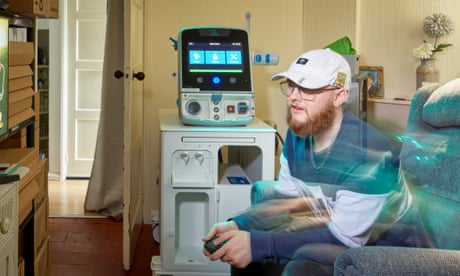- by foxnews
- 08 Apr 2025
Dialysis machine inspired by juice dispenser wins UK engineering prize
Dialysis machine inspired by juice dispenser wins UK engineering prize
- by theguardian
- 14 Jul 2022
- in technology

The device, made by Quanta, is currently used by about 50 patients in the UK, but more than a dozen NHS trusts are planning to offer the technology to patients this year and experts say it could transform the lives of kidney disease patients.
Dialysis removes waste products and excess fluid from the blood when the kidneys stop working properly. This typically involves diverting blood to a machine, around the size of a fridge-freezer, where it is passed through a complex system of mechanical valves, pumps and mixing chambers before being returned to the body.
Patients would usually have the procedure three times each week for four hours a time. Of the 30,000 dialysis patients in the UK, only about 5% use home devices because until now these have worked less efficiently than hospital systems, meaning that patients need to be hooked up for longer periods.
In the Quanta device, called SC+, the pistons and valve system are replaced by a disposable cartridge enclosed inside a flexible membrane, which is squeezed and released using pressure changes inside the machine to control the flow of dialysis fluid within. The tabletop machine is far smaller, does not require specialised training to use and works as efficiently as the conventional version.
The technology was originally developed to reconstitute orange juice from concentrate, but the team behind the invention saw its potential medical applications and spun out the company Quanta.
- by foxnews
- descember 09, 2016
Ancient settlement reveals remains of 1,800-year-old dog, baffling experts: 'Preserved quite well'
Archaeologists have recently unearthed the remarkably well-preserved remains of a dog from ancient Rome, shedding light on the widespread practice of ritual sacrifice in antiquity.
read more





